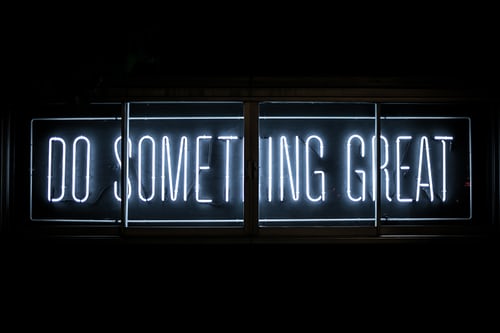
We’ve all been there. The insidious, irritating voice in your head that convinces you that you’ll fail before you’ve even tried. A frustrating form of self-sabotage that most struggle to overcome. It’s called imposter syndrome. And we know what triggers it. Major life transitions, success in the face of bias, the pressure of adhering to cultural norms, and who we were raised to believe we are. And no one is immune. Not only have 75% of women executives experienced it, 85% believe it is commonly experienced by other women. Michelle Obama, Penélope Cruz, Tina Fey – household names because of who they are and what they have achieved – describe vacillating between confidence and the terror that they will be discovered as a fraud.
There is immense power in community.
We hosted a virtual panel conversation for Women Who Lead to acknowledge the prevalence of imposter syndrome and show attendees that they weren’t alone. What happened was even better. Firstly, we had an overwhelming response to the event, reaching an international audience and a record-setting 488 registrants. When four accomplished individuals laid their imposter syndrome on the table, it flipped a switch. Brené Brown is right, vulnerability is powerful. In 90 minutes, we created a culture where imposter syndrome couldn’t thrive. How? By modelling authenticity and transparency with one another. This resonated with our audience. Our chat channel filled with messages from people who felt heard. The floodgates opened and we realized something. Imposter syndrome, at its core, has nothing to do with us. The reflections that followed were illuminating.
It’s not about you.
Firstly, imposter syndrome and coping strategies are often discussed in the context of the individual (i.e. how can I overcome these feelings?). However, there are social and structural forces at play that affect us all. The feeling of self-doubt that leads us to count ourselves out before we’ve even started stems from our circumstances and how we think others perceive us. Isolation and the absence of feedback breed self-doubt. Women are socialized to communicate without being “aggressive”, which undermines their ability to exercise power at work. What we think does not define who we are. Imposter syndrome is a symptom of a systemic disease endemic within our society.
Modelling strength and transparency unlocks potential.
The COVID-19 pandemic has disproportionately affected women. While the world faces unprecedented challenges, women’s paid labour and women-run business bear the brunt of the impact. As we round the corner, we see the power that comes with women supporting women and calling out social bias. A recently published article attacking the credentials of Dr. Jill Biden was widely condemned across social media. Michelle Obama called out that as women “our accomplishments are met with skepticism”. It’s time we move past internalizing imposter syndrome by harnessing the power of community to advance our individual and collective interests. We have the ability to help each other, even virtually, by providing safe and supportive feedback, speaking up for others, and creating the community we all need.
It starts with connection.
Imposter syndrome divides the individual from the rest of the world. We learned through our session that we can break through the divide by create connections around a shared experience. When we come together – even virtually – we can define what we up against both within and outside of ourselves. If imposter syndrome feeds on isolation, it doesn’t stand a chance.


